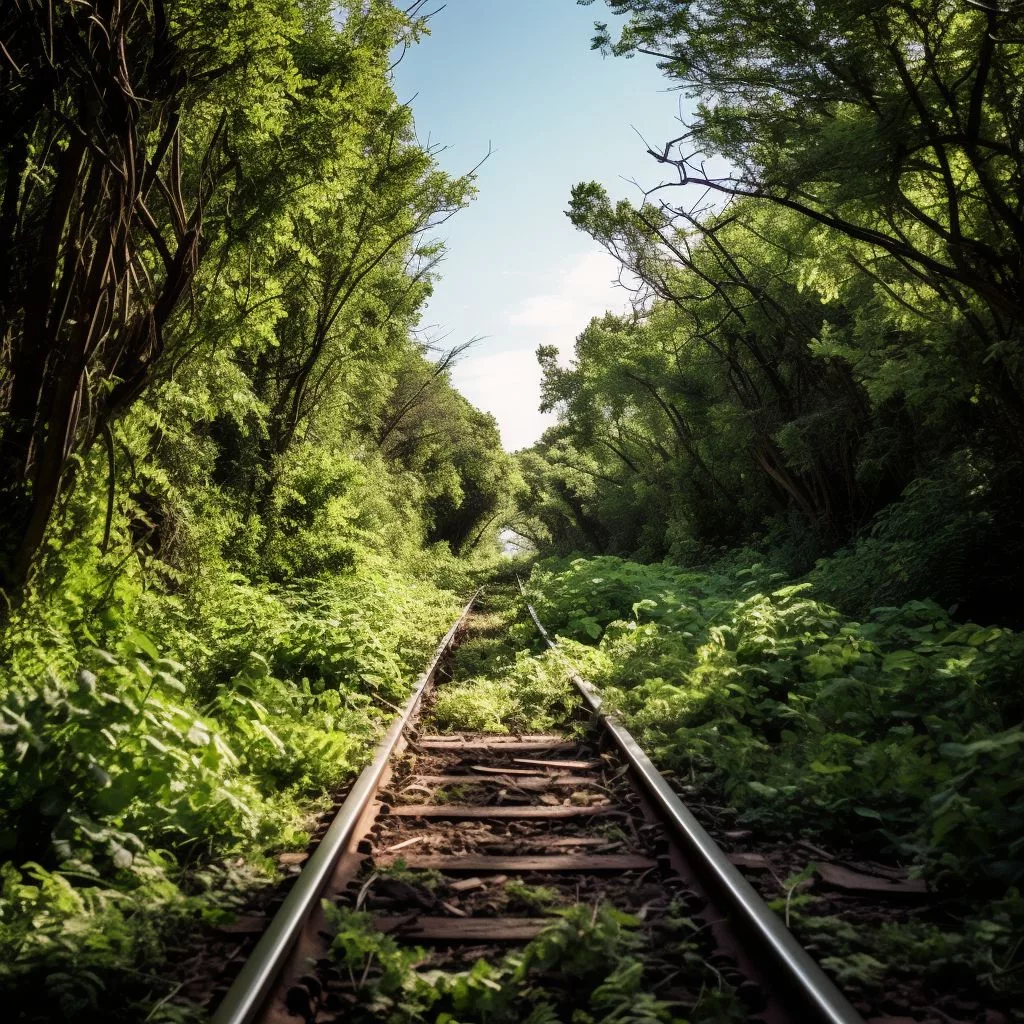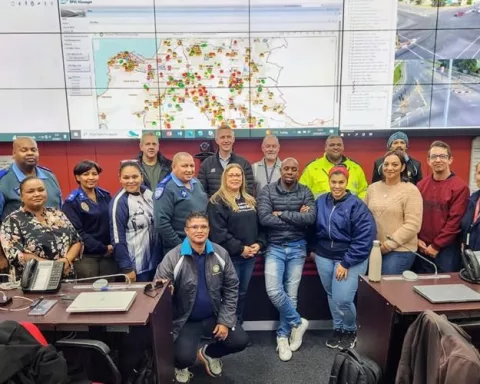The ongoing legal process highlights the need for more robust oversight mechanisms, transparency, and accountability in both the public and private sectors, and reflects the broader challenges faced by a nation undergoing transformation and renewal.
What is the Stolen Railway Line case in South Africa about?
The trial of former Prasa acting CEO Mthuthuzeli Swartz and Cape Town businessman Syed Mohiudeen has been delayed again in the Gqeberha Regional Court. They are accused of fraudulently selling a 42km stretch of unused railway line in the Eastern Cape, raising issues about public trust, bureaucracy, and the complexities of the South African legal system. The case has experienced numerous delays, with the latest stemming from a review application filed by Mohiudeen, further undermining public confidence in South Africa’s public transport sector.
A Peculiar Crime and Its Implications
In a case that has captivated the South African public for more than four years, the trial of former Prasa acting CEO Mthuthuzeli Swartz and Cape Town businessman Syed Mohiudeen has been once again delayed in the Gqeberha Regional Court. The two are accused of fraudulently selling a 42km stretch of unused railway line in the Eastern Cape, a crime that raises vital issues about public trust, bureaucracy, and the complexities of the South African legal system.
The case originated in early 2019 when Swartz and Mohiudeen were arrested and charged for their alleged roles in selling the railway line from Sterkstroom to Maclear to Cape Town cousins Adrian and Cedric Samuels in 2012. The prosecution claims that the Samuels paid a deposit of R1.5 million to Mohiudeen’s company, Spanish Ice, for the steel, with 25,000 tons purportedly already available and stored at the Metrorail yard in Woodstock. Swartz was the Metrorail Western Cape Regional Manager at that time.
Swartz’s appointment as Prasa’s acting CEO in January 2018, while under investigation for the case, raised suspicions and heightened concerns about potential corruption within the public transport sector. Swartz and Mohiudeen have consistently denied any wrongdoing, and the case has experienced numerous delays, with the most recent occurring on August 14.
Further Delays and Legal Complications
The latest postponement stems from a review application filed by Mohiudeen in the Eastern Cape High Court in February 2021, in which he requests more information about the charges against him. This review came after the previous magistrate, Nolitha Bara, declined to provide these details, resulting in further delays and complications.
At a recent court hearing, neither Swartz nor Mohiudeen was present, and both state and Swartz’s attorneys were acting as stand-ins. No representative was there for Mohiudeen, and attorney Julian Lindoor, representing Swartz, told Magistrate Essie Mkhari that there had been no communication from Mohiudeen’s attorney.
Lindoor asked the court to issue arrest warrants but hold Swartz’s warrant until the next court appearance. However, the magistrate was unable to do so because she could not read the handwritten records on the court file or determine whether a warrant had previously been issued. The matter of warrants and bail money was postponed until the next court date, set for December 1.
Impacts on Public Trust and the Legal System
The drawn-out legal process and repeated postponements in this case have led South Africans to question the effectiveness and transparency of their legal system, especially regarding high-profile cases involving public figures. Furthermore, the alleged participation of prominent individuals in such a scandal has further undermined public confidence in South Africa’s public transport sector, which has suffered from mismanagement, inefficiency, and corruption for years.
In a nation that has struggled with a history of political and economic instability, the Swartz-Mohiudeen case serves as a warning, emphasizing the urgent need for more robust oversight mechanisms, transparency, and accountability in both the public and private sectors. As the case proceeds, South Africans will be closely watching their legal system, hoping for a resolution that restores their faith in the rule of law and the integrity of their public institutions.
A Reflection of South Africa’s Past and Present
This case also provides a unique insight into the broader context of South Africa’s history and current state. The sale of the railway line – an emblem of the country’s industrial development and a testament to its complex history of colonialism and apartheid – reminds us of the ongoing challenges faced by a nation undergoing a painful process of transformation and renewal.
As the Swartz-Mohiudeen case winds its way through the courts, one can’t help but think about the many layers of meaning and significance that underpin this unusual saga. Beyond the immediate legal questions at hand, the tale of a stolen railway line in the Eastern Cape addresses broader issues of trust, justice, and accountability that continue to shape South Africa’s evolving landscape.
1. What is the Stolen Railway Line case in South Africa about?
The case involves former Prasa acting CEO Mthuthuzeli Swartz and Cape Town businessman Syed Mohiudeen, who are accused of fraudulently selling a 42km stretch of unused railway line in the Eastern Cape.
2. What are the implications of this case?
The case raises issues about public trust, bureaucracy, and the complexities of the South African legal system, highlighting the need for more robust oversight mechanisms, transparency, and accountability in both the public and private sectors.
3. What are the charges against Swartz and Mohiudeen?
The two are accused of fraudulently selling the railway line from Sterkstroom to Maclear to Cape Town cousins Adrian and Cedric Samuels in 2012.
4. What is the status of the case?
The case has experienced numerous delays, with the latest stemming from a review application filed by Mohiudeen in February 2021.
5. How has the legal process impacted South Africans’ trust in the system?
The drawn-out legal process and repeated postponements have led South Africans to question the effectiveness and transparency of their legal system, especially regarding high-profile cases involving public figures.
6. What do the delays mean for the public transport sector?
The alleged participation of prominent individuals in such a scandal has further undermined public confidence in South Africa’s public transport sector, which has suffered from mismanagement, inefficiency, and corruption for years.
7. What is the broader context of the case?
The sale of the railway line reflects the ongoing challenges faced by a nation undergoing a painful process of transformation and renewal, highlighting the need for accountability and transparency in all sectors.
8. What can we expect moving forward?
As the case proceeds, South Africans will be closely watching their legal system, hoping for a resolution that restores their faith in the rule of law and the integrity of their public institutions.








